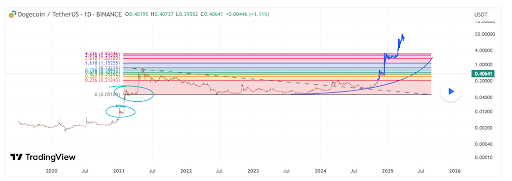Terrorist organizations associated with the ISIS group have raised more than $2 million this year with cryptocurrencies, according to a recent report by TRM Labs.
The blockchain intelligence firm disclosed this in its new report stating that the terrorist group increasingly used crypto for its fundraising activities.
Pro-ISIS Group Raised 2 Million in USDT
According to the report, significant on-chain evidence shows that Pro-ISIS networks in Tajikistan, Pakistan, Afghanistan, and Indonesia have been using crypto for their activities. Most of these transactions are in Tether USDT on the Tron network.
This corroborates a recent BeInCrypto report that stated that criminals increasingly favored stablecoins like USDT for their illicit transactions.
The pro-ISIS groups use crypto to recruit fighters to join an ISIS affiliate in Afghanistan (ISKP). One such group in Tajikistan received more than 2 million USDT in 2022.
TRM Labs revealed how it informed an unnamed exchange to identify the person behind the account and alerted the authorities. This led Turkish authorities to arrest Shamil Hukumatov on June 22. Hukumatov is a senior ISIS fundraiser and is allegedly behind the fundraising.
Other pro-ISIS groups in Indonesia, Afghanistan, and Pakistan have also received crypto assets. These organizations received a combined $567,000 in crypto assets donations in 2022.
Chainalysis Says Crypto is Not Crime Friendly
Earlier this month, Chainalysis reported that crypto was not crime-friendly, and its use by criminals has dropped by 65% this year. The firm focused on illicit activities involving ransomware attackers and darknets. It also reported that crypto scammers’ revenue has dropped by 77% in the current year.
However, the decline in overall crypto crimes has not convinced regulators about its preference for criminals. Kuwait recently banned cryptocurrencies citing their possible use for money laundering and terrorist financing.
Even countries like Belarus and Australia that are not banning digital assets are also introducing measures to limit their use for illicit purposes.
Belarus wants to ban peer-to-peer crypto transactions to combat cybercrime, while Australian banks are restricting payments to “high risk” exchanges.
Disclaimer
In adherence to the Trust Project guidelines, BeInCrypto is committed to unbiased, transparent reporting. This news article aims to provide accurate, timely information. However, readers are advised to verify facts independently and consult with a professional before making any decisions based on this content.
Credit: Source link















































